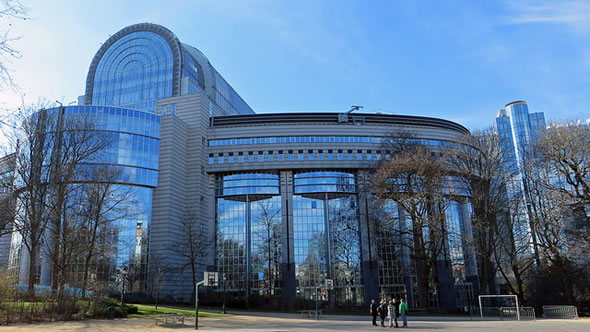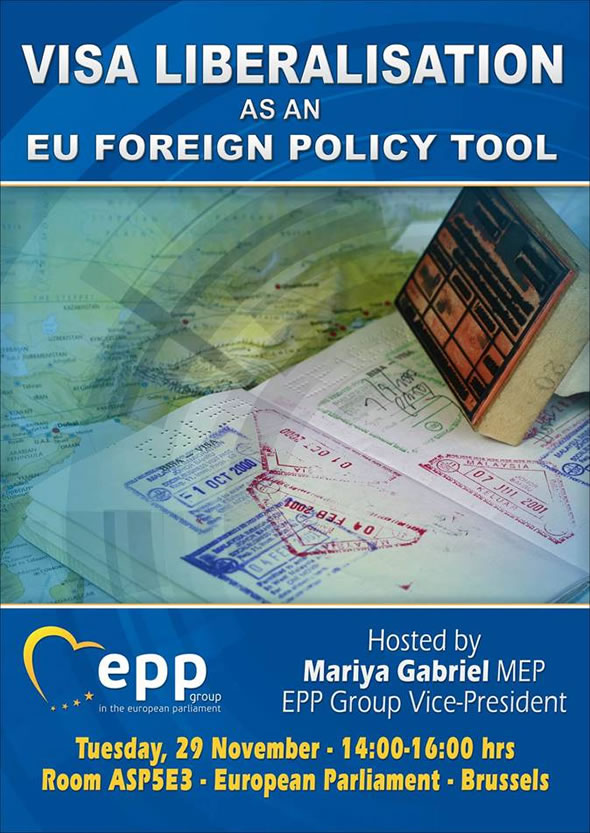Brussels – Visa Liberalisation as an EU Foreign Policy Tool

ESI Senior Analyst spoke at the event "Visa Liberalisation as an EU Foreign Policy Tool", organised by MEP and EPP Vice-President Mariya Gabriel at the European Parliament, arguing that the issue of visa-free travel for Turkey had to be resolved.
Alexandra said the visa requirement for Turkish citizens should be lifted on two conditions: firstly, that Turkey introduces transparency in how it treats Syrian refugees and asylum seekers of other nationalities returned from Greece to Turkey under the EU-Turkey refugee agreement of March 2016, demonstrating that the returnees are treated in full compliance with international standards. This means that Syrian returnees immediately receive protection under Turkey's Temporary Protection Scheme for Syrian refugees, and that other nationalities have prompt access to an asylum procedure and all envisaged benefits if they are granted protection. The second condition for visa-free travel would be, said Alexandra, that Turkey allows an independent investigation into allegations of torture following the coup attempt in July.
She said that the open benchmark of an amendment of the anti-terror legislation had become obsolete and would not improve the human rights situation in Turkey. Even if Turkey changed these laws, prosecution would continue, she said. There are many other offenses in Turkey's criminal code that the authorities can use – and already use - to detain and convict critics and opponents.
Alexandra also called on the participants of the event to be aware that the visa requirement for Turkish citizens does not affect the ruling class in Turkey. Political office holders and civil servants above a certain grade – this means senior police officials, persecutors, judges, even teachers - have special, so-called green passports, which allow them to enter EU member states without a visa. Between 2010 and 2015, Turkey issued 16 million passports. More than 2 million – 17 percent - were green passports. If one adds to this, the number of holders of diplomatic and service passports, more than 20 percent of Turkish passports holders can already travel to the EU visa-free. "Who is affected by the visa requirement," said Alexandra, "are Turkish businesspeople, students, journalists, activists and the travelling middle class – in fact, the civil society which we want to support."
More generally, she said that the EU's visa liberalisation processes have been a successful policy that has led to many important reforms in the countries participating in it, including in Turkey. Five Western Balkan countries received visa-free travel in 2009 and 2010; Moldova in 2014; and currently processes are conducted with Turkey, Georgia, Ukraine and Kosovo.
Other speakers at the event included Mariya Gabriel; Mikheil Janelidze, Foreign Minister of Georgia; Belinda Pyke, Director for Migration, Mobility and Innovation at the Home Affairs Directorate-General of the European Commission; Vladimir Simonak, First Secretary in the Home Affairs Department of the Permanent Representation of the Slovak Republic to the EU; MEPs Augustin Diaz de Mera and Jacek Saryusz-Wolski; Leonello Gabrici, Head of the Division on Migration and Human Security at the European External Action Service; and the heads of missions to the EU of Ukraine, Montenegro and Columbia.

